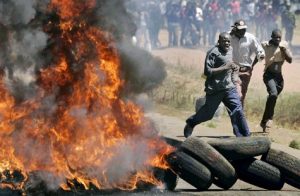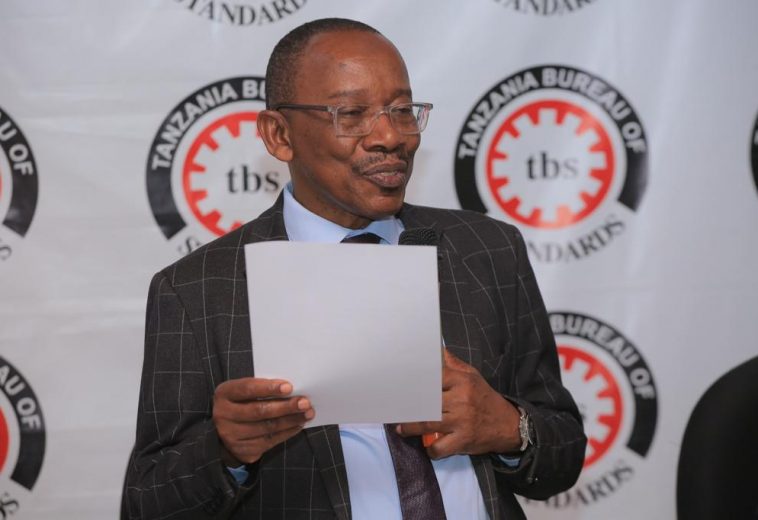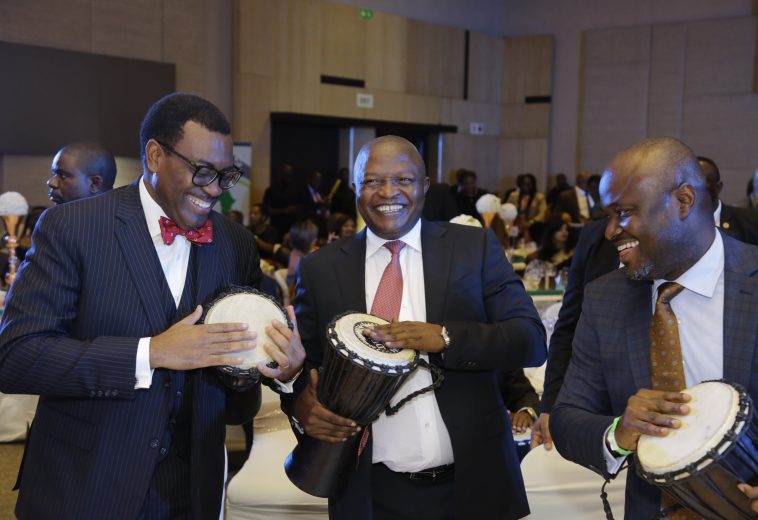Lessons from Previous General Elections in Africa
General elections serve as crucial milestones in a nation’s democratic journey, providing citizens with the opportunity to shape the future of their country through the power of their vote. Liberia, like many African nations, has experienced both successful and challenging general elections, each offering valuable lessons that can guide the country toward conducting fair, transparent, and peaceful elections. Drawing from the outcomes of these elections, Liberia can identify key factors that contribute to success or failure and implement measures to ensure inclusive participation, strengthen democratic institutions, and foster national unity.
Lessons from Successful General Elections in Africa
Across Africa, there have been notable success stories where general elections have exemplified the transformative power of peaceful democratic transitions. One such example is Nigeria’s 2019 and 2023 general elections. Nigeria, with a history of electoral violence and irregularities, successfully conducted a largely peaceful and credible election, leading to a smooth transfer of power. The introduction of innovative technologies, including biometric voter registration and card readers, significantly enhanced the integrity of the electoral process. Effective voter education campaigns, robust media coverage, and the presence of international observers played crucial roles in ensuring transparency and accountability.
Similarly, Ghana’s democratic journey has seen significant strides in the conduct of general elections. Ghana’s 2016 and 2020 general elections showcased the country’s commitment to democratic principles and peaceful transitions of power. The Electoral Commission’s meticulous preparation, including a credible voter registration process, ensured accurate voter rolls and minimised irregularities. The Ghanaian media played an active role in providing fair and balanced coverage, facilitating open debates among candidates, and enabling citizens to make informed choices. The successful electoral process demonstrated Ghana’s strong democratic institutions, which allowed for peaceful transitions and a deepening of democratic values.
The Ghanaian media played an active role in providing fair and balanced coverage.
Lessons from Challenging General Elections in Africa
However, the African continent has also witnessed instances where general elections faced significant challenges, leading to unrest and instability. The Democratic Republic of the Congo (DRC) serves as a stark example of a nation grappling with electoral difficulties. The 2018 elections in the DRC were marred by allegations of voter fraud, logistical challenges, and violent clashes. The disputed outcome triggered a prolonged political crisis, undermining the credibility of the electoral process and igniting widespread protests. The DRC’s experience emphasises the importance of transparency, adequate preparation, and addressing grievances to prevent the erosion of democratic progress and stability.
Another case worth considering is Kenya’s 2007 general elections, which were marred by widespread violence and disputed results. The contentious election led to ethnic tensions and deadly clashes, highlighting the need for a comprehensive and inclusive electoral process. Kenya’s subsequent electoral reforms, including the establishment of an independent electoral commission and the adoption of technology to enhance transparency, serve as important lessons for Liberia.
Violence during Kenya’s election
Lessons for Liberia’s Path to Fair and Peaceful Elections
As Liberia aims to consolidate its democratic gains and foster national unity, it can draw important lessons from both successful and challenging general elections in Africa. The following recommendations can guide Liberia in conducting fair, transparent, and peaceful elections:
Inclusive electoral process
Liberia must ensure an inclusive electoral process that gives equal opportunities to all political parties, civil society organisations, and stakeholders. A level playing field guarantees citizens genuine choices and fosters trust in the fairness of the election.
Transparent Processes
Liberia should adopt and implement robust electoral reforms to enhance transparency throughout the electoral cycle. This includes strengthening the voter registration system, ensuring the accuracy of voter rolls, and utilising technology to eliminate voter fraud and irregularities. Transparent processes should encompass campaign financing, media coverage, and the announcement of results.
Voter education and civic engagement
An informed electorate is crucial for the success of any election. Liberia should invest in comprehensive voter education programmes that empower citizens with knowledge about their rights and responsibilities, the voting procedures, and the importance of peaceful participation. These voter education campaigns should target diverse segments of the population, including women, youth, and marginalised communities. Furthermore, Liberia should promote civic engagement by encouraging open debates, town hall meetings, and public forums that allow citizens to interact with candidates, ask questions, and make informed choices.
Strengthening Electoral Management Bodies
Liberia must strengthen its electoral management bodies, such as the National Elections Commission (NEC), to ensure their independence, professionalism, and capacity to administer free and fair elections. This includes providing adequate resources, training, and oversight mechanisms to enhance their efficiency and credibility. Additionally, engaging in regular dialogue and collaboration with political parties and civil society organisations can foster a culture of trust and cooperation in the electoral process.
Security and safety measures
Ensuring the security and safety of voters, candidates, and election officials is paramount. Liberia should collaborate closely with security agencies to develop comprehensive security plans that address potential risks and threats during the electoral process. Adequate training, deployment, and coordination of security personnel can help maintain a peaceful environment and instill confidence in voters.
Dispute Resolution Mechanisms
Preparing for potential electoral disputes is essential to maintaining peace and stability. Liberia should establish efficient and impartial dispute resolution mechanisms that can swiftly address any grievances or complaints that may arise during or after the election. This includes providing legal avenues for redress, promoting transparency in the resolution process, and encouraging peaceful means of dispute resolution.
Media Freedom and responsible journalism
A free and independent media is indispensable for a fair electoral process. Liberia should safeguard media freedom, allowing journalists to operate without censorship, intimidation, or harassment. Media organisations should adhere to ethical journalism standards, provide balanced and unbiased coverage, and avoid disseminating hate speech or inflammatory content. By promoting responsible journalism, Liberia can ensure that accurate and reliable information reaches the public, enabling them to make informed decisions.
Women’s Political Participation
Liberia should actively promote and support women’s meaningful participation in the electoral process. This includes removing barriers that hinder women’s candidature, addressing cultural and societal biases, and providing support mechanisms, such as training and mentoring programmes, to enhance women’s political leadership. Increasing women’s representation as candidates, voters, and election officials not only strengthens democracy but also contributes to inclusive decision-making and governance.
International Support and Partnership
Liberia should actively seek international support and partnerships to enhance its electoral processes. Collaborating with international organisations, regional bodies, and bilateral partners can provide technical expertise, financial resources, and electoral assistance. International observers and election monitoring missions should be invited to ensure impartiality, transparency, and credibility in the electoral process. Their presence serves as an external check on the electoral process, further reinforcing confidence and accountability.
Post-Election Reconciliation and Dialogue
Regardless of the election outcome, Liberia must prioritise post-election reconciliation efforts. This involves engaging in dialogue, promoting understanding, and addressing the concerns of all segments of society. Liberia should establish mechanisms for national healing, reconciliation, and dialogue to address any divisions that may have emerged during the election campaign. By fostering a sense of unity and inclusivity, Liberia can move forward as a cohesive nation.
It is important to note that holding free, fair, and peaceful elections is not an end in itself but rather a means to an end. It is the foundation upon which good governance, economic development, and social progress can be built. The success of Liberia’s upcoming general elections will depend on the collective efforts of all stakeholders: political parties, civil society organisations, the international community, and any other stakeholders.
Liberia stands at a critical juncture as it prepares for the upcoming general elections. By drawing lessons from successful and challenging elections across the African continent, Liberia can chart a path towards conducting fair, transparent, and peaceful elections. As Liberia aspires to realise its democratic aspirations, it must embrace the lessons learned and prioritise the implementation of comprehensive electoral reforms. Ultimately, the successful conduct of fair and peaceful elections in Liberia will not only consolidate its democracy but also contribute to regional stability and set an example for other African nations. It will demonstrate Liberia’s commitment to democratic governance, respect for human rights, and the rule of law.



